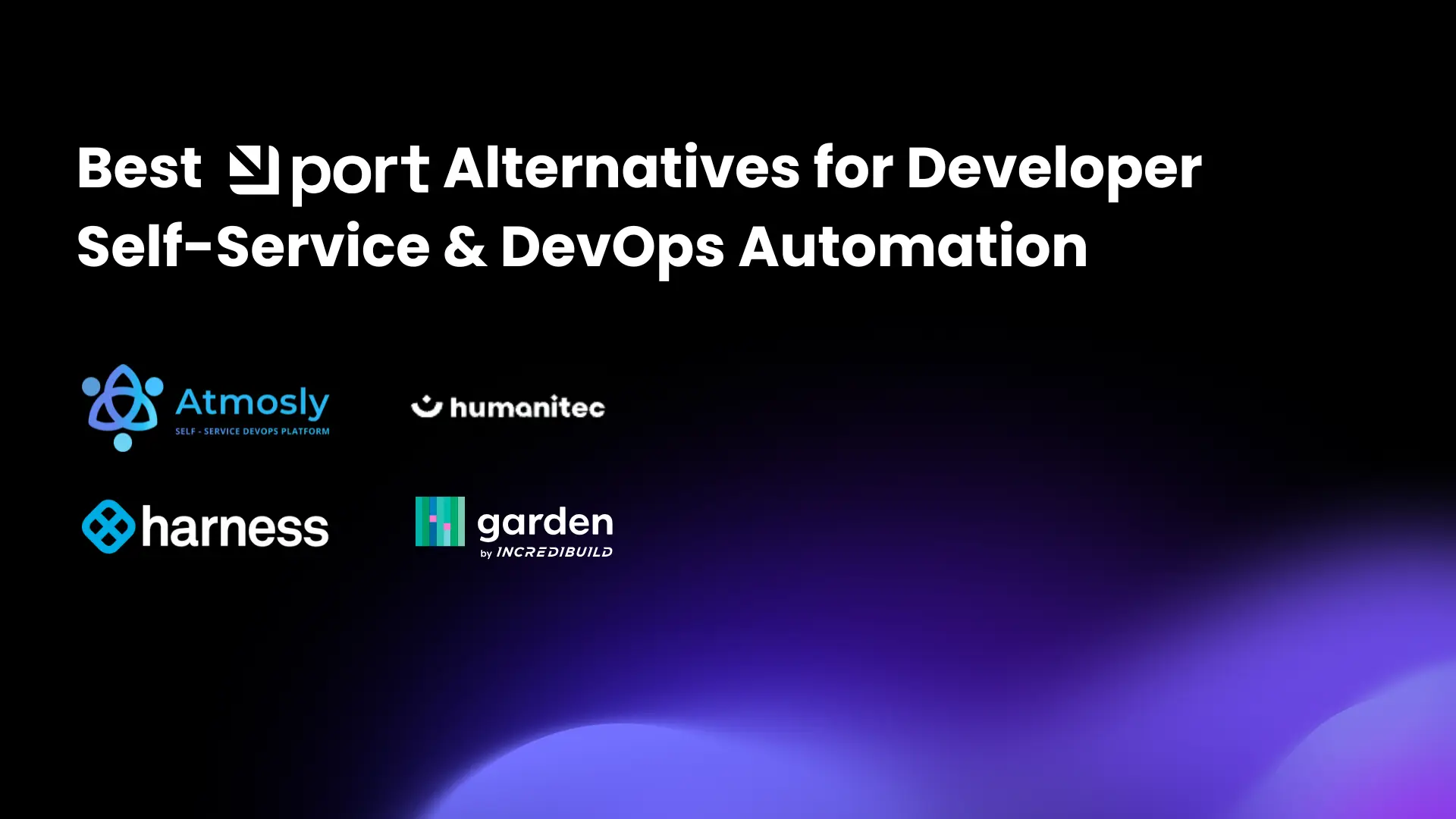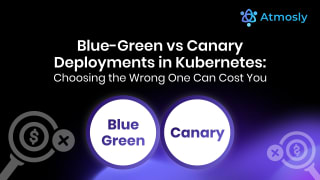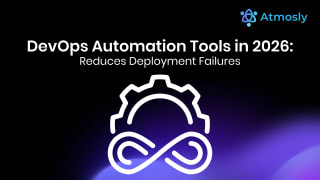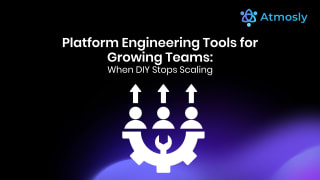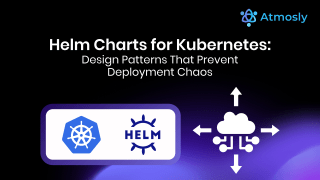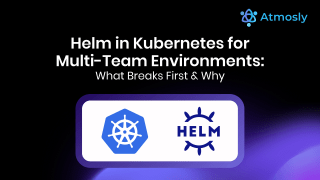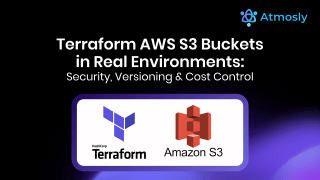Port is well-known for helping teams build internal developer portals by exposing infrastructure operations through customizable UIs. While this works for visual workflows, many engineering teams are looking for deeper automation, GitOps-native delivery, environment provisioning, and more control over developer self-service.
If you're evaluating alternatives to Port that better support DevOps automation and scalable self-serve infrastructure, this guide highlights the top platforms to consider in 2025.
1. Atmosly
Best for: GitOps-native platform engineering with built-in CI/CD, environments, and secrets management.
Atmosly is a full-stack DevOps automation platform designed to enable modern platform teams to deliver developer self-service at scale. It combines CI/CD, environment provisioning, GitOps workflows, and secrets management into a unified experience.
Key Features:
- GitOps-native deployments with drift detection & rollback
- Ephemeral and persistent environment provisioning
- Built-in CI/CD engine with approvals and triggers
- Secrets management with RBAC and policy controls
- Golden path templates for scalable developer onboarding
Why Choose Atmosly:
- No need for complex integrations or scripting
- Ideal for product teams, platform engineers, and DevOps leads
- Enables fast, secure, and repeatable infrastructure workflows
2. Humanitec
Best for: Enterprise-grade platform orchestration through configuration APIs.
Humanitec offers a flexible backend platform that abstracts infrastructure and automates environment management via APIs. It helps teams implement consistent delivery patterns across services while giving developers programmatic control.
Key Features:
- Dynamic environment provisioning via declarative APIs
- Integration with Kubernetes, Terraform, ArgoCD
- Policy enforcement for compliant delivery workflows
- Decouples app config from infrastructure definitions
Why Choose Humanitec:
- Enterprise-ready solution for scalable platform engineering
- Great for teams focused on governance and configuration-as-code
- Flexible orchestration layer that fits into existing infrastructure
3. Harness
Best for: Enterprise CI/CD with strong governance, approvals, and cloud cost controls.
Harness is a commercial software delivery platform offering continuous integration, delivery, feature flags, cloud cost management, and security built-in. It focuses on making deployments safer and more predictable for large organizations.
Key Features:
- Advanced CI/CD with canary, blue/green, and rolling deployments
- Built-in policy-as-code and approval workflows
- Feature flag management and A/B testing
- Cloud cost visibility and auto-stopping unused resources
Why Choose Harness:
- Robust CI/CD pipeline control and compliance features
- Good fit for organizations with mature DevOps and regulatory needs
- Highly extensible and supports multi-cloud environments
4. Garden
Best for: Kubernetes development automation and dev/test environment provisioning.
Garden focuses on improving developer productivity by automating build, test, and deploy workflows in Kubernetes. It is especially useful for microservice teams needing fast feedback and reusable dev/test environments.
Key Features:
- Developer-first CLI for Kubernetes apps
- Task automation for builds, tests, and deployments
- Caching and hot reloading to speed up dev workflows
- Integration with Helm, Kustomize, and CI/CD tools
Why Choose Garden:
- Simplifies Kubernetes workflows for engineering teams
- Accelerates inner-loop development and testing
- Works well alongside GitOps and external CD tools
Final Thoughts
While Port provides a strong visual interface for service catalogs and metadata, teams focused on automation, GitOps, and scalable infrastructure-as-code often need more.
- Choose Atmosly for end-to-end self-service, GitOps-native automation, and developer-centric workflows.
- Choose Humanitec if you need API-first platform orchestration and governance.
- Choose Harness for enterprise-grade CI/CD with compliance and policy layers.
- Choose Garden if your priority is improving Kubernetes developer workflows and testing speed.
Each of these platforms addresses modern DevOps pain points and supports scalable, self-service infrastructure—essential for high-performing engineering teams in 2025.
Ready to Streamline Developer Self-Service?
Explore how platforms like Atmosly, Harness, Port, and Humanitec can accelerate your DevOps workflows. Whether you're building an internal developer platform or modernizing delivery pipelines, the right tool can make all the difference.
- Schedule a demo tailored to your use case
- Start a free trial and deploy your first GitOps workflow
- Talk to our solution engineers to plan your platform migration
